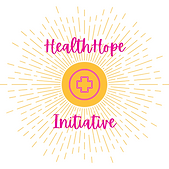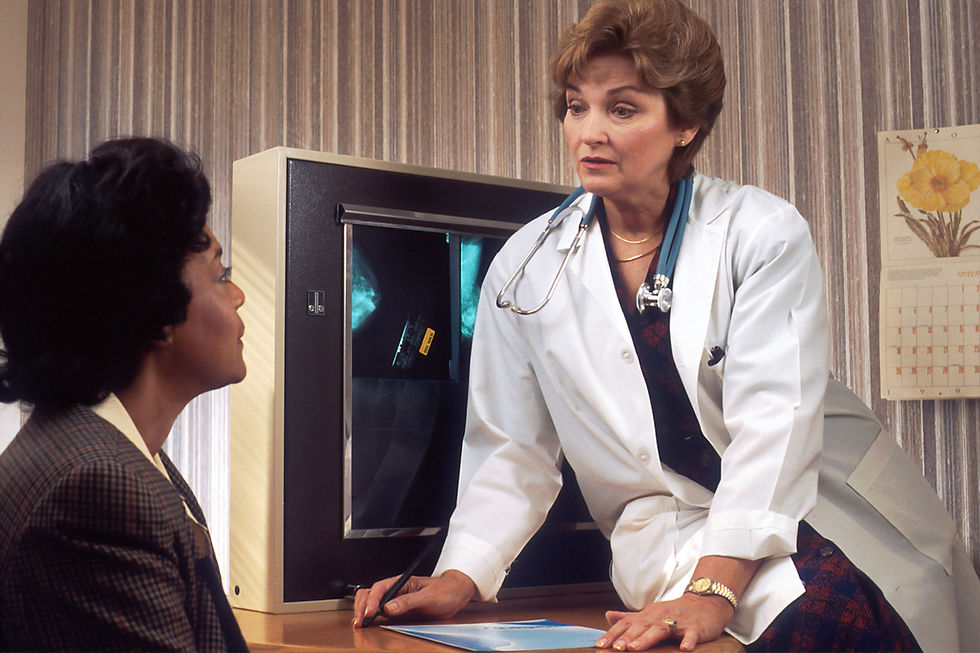No, You’re Not Just “Imagining” It: On How Misogynistic Stereotypes and the Gender Data Gap Have Been Weaponized Against Women Seeking Medical Help
- HealthHope Initiative
- Jul 29, 2025
- 3 min read
Writer: Keerthi Kannan

A woman details debilitating pain. Doctors tell her she is being dramatic. She is later found to have colon cancer. A woman details fatigue and is told she is depressed. She has an autoimmune disease. Heart disease is attributed to “anxiety”, and pain caused by endometriosis is overlooked as PMS or as a “normal” part of menstruation. The American Journal of Medicine defines “Medical Gaslighting” as “an act that invalidates a patient's genuine clinical concern without proper medical evaluation, because of physician ignorance, implicit bias, or medical paternalism”, and indeed: this perfectly summarizes the experiences of many women seeking treatment.
Due to age-old stereotypes of women as hysterical and less capable of managing their emotions, physicians often attribute the symptoms women talk about to problems that come with emotional overload, such as stress, choosing to not believe female patients who tell them it is something more.
Moreover, due to the gender data gap in medical research, healthcare professionals also know less about women’s bodies, making them more likely to misdiagnose women. For example, heart disease manifests as different symptoms for both men and women, but doctors are usually more familiar with male symptoms, leading them to chalk up women’s symptoms to something else entirely. Women suffering heart attacks are over 50% more likely to be misdiagnosed, and on average, women wait 11 minutes longer to receive emergency treatment for heart attacks.
Medical research also disproportionately focuses on men: drugs approved by the FDA for everyone often either fail to include women at all in their trials or only include them in the first or second trial steps. Women make up 60% of those diagnosed with psychiatric disorders but are only 42% of participants in clinical trials. This is extremely dangerous and translates into women having more risk when using medication: for 86 different approved medications, women reacted negatively twice as much as men. Moreover, when women are included in drug tests, it’s often when they are at the early
follicular stage of the menstrual cycle–which is when their hormone levels are closest to that of men. The vast majority of cell tests are done on men, even though women’s cells react very differently, and medication that could potentially work for women due to their different immune systems, never sees the light.
Diseases that only or are more likely to affect women are underrepresented in studies, with obstetrical complications, which affect more than 33% of women worldwide, represented in only about 2% of clinical trials. This leads to increased misdiagnosis–such as the classic case of autoimmune diseases being watered down to depression.
Research on women’s health is also underfunded, whether it be regarding ovarian or cervical cancer, Alzheimer's, or cardiovascular disease. Viagra was shown to alleviate menstrual pain, but research couldn’t advance past the early stages due to a lack of funding. Additionally, due to the lack of data on women’s health, people who wish to center it in their research often can’t even prove their project is worth funding. For over fifty years, the male model was the default in medical research, and while society has moved on from viewing men as the default human, systemic bias persists.
____________________________________________________________
Works Cited
Criado Perez, Caroline. Invisible Women: Data Bias in a World Designed for Men. Abrams Press, 2019.
"Gaslighting in Women's Health." Northwell Health, https://www.northwell.edu/katz-institute-for-womens-health/articles/gaslighting-in-womens-health.
"Medical Gaslighting Research." University of Kansas Medical Center, https://www.kumc.edu/about/news/news-archive/medical-gaslighting-research.html.
O'Connor, Anahad. "Feeling Dismissed by Your Doctor? How to Spot ‘Medical Gaslighting’ and What to Do About It." The New York Times, 28 Mar. 2022, https://www.nytimes.com/2022/03/28/well/live/gaslighting-doctors-patients-health.html.
"Definition of Medical Gaslighting." The American Journal of Medicine, https://www.amjmed.com/article/S0002-9343(24)00396-6/fulltext#:~:text=in%20clinical%20practice.-,Definition%20of%20Medical%20Gaslighting,implicit%20bias%2C%20or%20medical%20paternalism.
"Study Shows Gender Disparities in Heart Attack Outcomes." Health.mil, 27 Mar. 2024, https://health.mil/News/Dvids-Articles/2024/03/27/news467058#:~:text=%E2%80%9CA%20May%202022%20study%20in,impact%20on%20heart%20attack%20outcomes.%E2%80%9D.
"The Gender Health Data Gap." National Library of Medicine, https://pmc.ncbi.nlm.nih.gov/articles/PMC10494683/#:~:text=The%20gender%20health%20data%20gap%20is%20characterized%20by%201%20%2C%204,light%20of%20men's%20symptoms%20as.
"Viagra May Alleviate Dysmenorrhea-Related Pain, However, Funding Challenges Have Limited Clinical Research." Pharmacy Times, https://www.pharmacytimes.com/view/viagra-may-alleviate-dysmenorrhea-related-pain-however-funding-challenges-have-limited-clinical-research#.
"Gender Data Gap: How Healthcare Is Systematically Discriminating Against Women." Evening Standard, https://www.standard.co.uk/futurelondon/health/gender-data-gap-caroline-criado-perez-on-how-healthcare-is-systematically-discriminating-against-women-a4246221.html.
"The Gender Data Gap: A Silent Injustice." Hospitality Insights, https://hospitalityinsights.ehl.edu/data-bias-gender-data-gap#:~:text=existing%20power%20dynamics.-,The%20Gender%20Data%20Gap%3A%20A%20Silent%20Injustice,in%20many%20spheres%20of%20life.
"Why We Know So Little About Women's Health." Association of American Medical Colleges (AAMC), https://www.aamc.org/news/why-we-know-so-little-about-women-s-health.
Vesoulis, Abby. "The Gender Gap in Medical Research Is Hurting Women's Health." Time, 5 Apr. 2023, https://time.com/7171341/gender-gap-medical-research/.




Comments